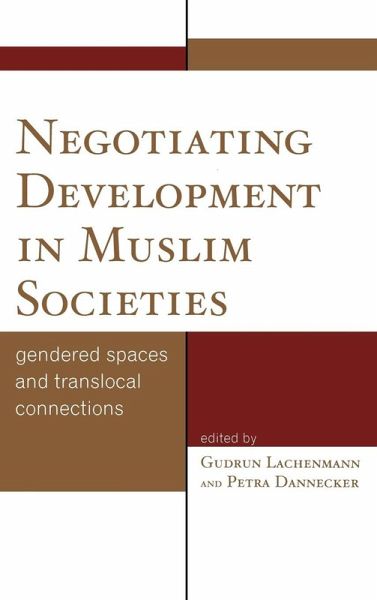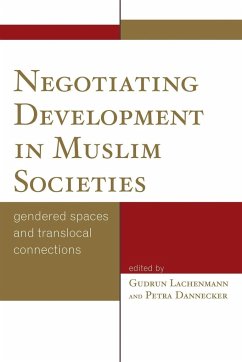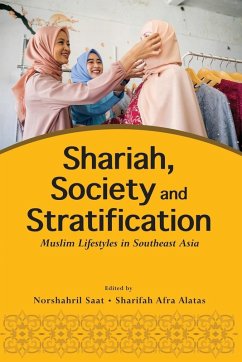
Negotiating Development in Muslim Societies
Gendered Spaces and Translocal Connections
Versandkostenfrei!
Versandfertig in 1-2 Wochen
122,99 €
inkl. MwSt.
Weitere Ausgaben:

PAYBACK Punkte
61 °P sammeln!
Negotiating Development in Muslim Societies explores the negotiation processes of global development concepts such as poverty alleviation, human rights, and gender equality. It focuses on three countries which that are undergoing different Islamisation processes: Senegal, Sudan, and Malaysia. While much has been written about the hegemonic production and discursive struggle of development concepts globally, this book analyzes the negotiation of these development concepts locally and translocally. Lachenmann and Dannecker present empirically grounded research to show that, although women are in...
Negotiating Development in Muslim Societies explores the negotiation processes of global development concepts such as poverty alleviation, human rights, and gender equality. It focuses on three countries which that are undergoing different Islamisation processes: Senegal, Sudan, and Malaysia. While much has been written about the hegemonic production and discursive struggle of development concepts globally, this book analyzes the negotiation of these development concepts locally and translocally. Lachenmann and Dannecker present empirically grounded research to show that, although women are instrumentalized in different ways for the formation of an Islamic identity of a nation or group, they are at the same time important actors and agents in the processes of negotiating the meaning of development, restructuring of the public sphere, and transforming the societal gender order.














